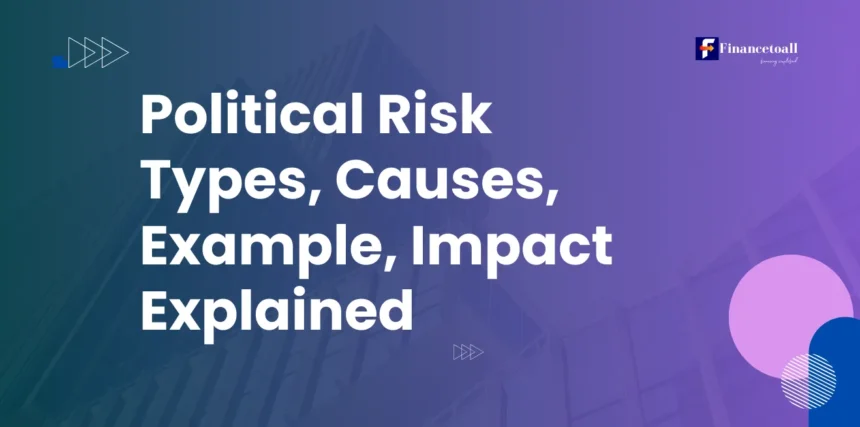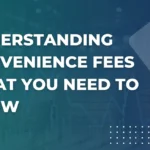Political risk is a big problem for businesses, investors, and governments everywhere. It doesn’t matter if the country is rich or still growing—political events can stop businesses, cause losses, and hurt the economy. Political risk happens when government changes, bad decisions, or instability make it hard for businesses to work. It’s important to understand these risks to succeed in global markets.
Types of Political Risk
Political risk shows up in many ways, and each type can cause different problems. Here are the main types:
- Regulatory Risk: This happens when laws, taxes, or rules suddenly change. For example, if a government changes labor or environmental laws, it can make running a business more expensive.
- Expropriation/Nationalization: Sometimes governments take control of private businesses or resources, like oil or mining companies, without paying a fair price.
- Political Violence: Events like wars, terrorism, or civil unrest can stop business operations, destroy infrastructure, and put employees in danger, causing major disruptions.
- Breach of Contract: This happens when a government breaks agreements it made with private companies. This can ruin long-term business plans.
- Currency and Exchange Controls: Governments might limit the movement of money across borders. This can make it hard for businesses to send profits home or manage their finances.
- Sovereign Default: If a country doesn’t pay back its debts, businesses and investors can lose money. This also shakes confidence in the country’s economy.
Causes of Political Risk
Political risk happens when problems in a country make it hard for businesses to feel safe or confident. These are the main causes:
- Unstable Governments: Countries where the government changes a lot or is weak often make sudden changes to rules and laws. This makes it hard for businesses to plan ahead.
- Elections and Leadership Changes: When elections happen or new leaders take over, there’s often uncertainty about what rules or policies they’ll create. Businesses may hold off on investing until things settle down.
- Corruption: If there’s a lot of corruption, businesses may have to pay bribes or deal with unfair rules. This makes doing business expensive and risky.
- Conflicts Between Countries: Problems like trade wars, sanctions, or even small fights between countries can mess up global trade and business partnerships.
- Protests and Social Issues: When people protest because of unfair treatment, low pay, or government problems, it can lead to violence. This makes the area unsafe for businesses to work in.
Real-Life Examples of Political Risk
Here are some examples of how political risk has affected businesses:
- In Venezuela, the government took over oil companies that were owned by other countries. They didn’t pay the businesses fairly, causing huge losses for the investors.
- Brexit, when the UK left the European Union, made businesses nervous because it changed trade rules and made it harder to hire workers.
- The US-China Trade War added taxes on many goods traded between the two countries. This hurt businesses that depend on global supply chains.
How Political Risk Affects Businesses
Political risk can hurt businesses in many ways:
- Fewer Investments: Investors often avoid risky countries, so businesses lose money and opportunities.
- Delays and Losses: Protests, wars, or violence can stop goods from being delivered on time. This causes businesses to lose money.
- Higher Costs: Governments might add new taxes or fees, which makes it more expensive for companies to operate.
- Bad Public Image: If a company is seen as working with a corrupt or unfair government, customers might lose trust in them.
Political Risk in Emerging vs. Developed Markets
Political risk is a bigger problem in emerging markets because these countries often have weaker governments, unclear rules, and more corruption. Businesses in these places face more problems, but they can also make more money because these markets have lots of new opportunities.
But political risk can also happen in developed countries. For example, when the UK left the European Union (Brexit) or when the US government shut down for a time, businesses were affected. These risks can disrupt trade and make people less confident about spending money.
How Businesses Handle Political Risk
Here are some simple ways businesses deal with political risk:
- Study the Risks: Businesses research a country’s political situation to find out if it’s risky to work there. They also look at ratings that show how stable the country is.
- Get Insurance: Companies buy special insurance to protect themselves. This helps them recover money if the government takes their property or if violence stops their business.
- Spread Out Investments: Instead of putting all their money in one country, businesses invest in many places. This way, if something bad happens in one country, it won’t ruin everything.
- Work with Governments: Businesses build good relationships with local leaders. This helps them understand new laws and handle changes better.
- Protect Money: Businesses use financial tools to protect themselves if a country stops them from sending money home or if its money loses value.
How Organizations and Trade Deals Help
Big organizations and trade agreements help make things safer for businesses:
- Organizations Like the World Bank: These groups give countries money and encourage fair rules. This makes it easier for businesses to work there without worrying about sudden changes.
- Trade Deals: Deals like NAFTA (North American Free Trade Agreement) make rules for trading between countries. They protect foreign businesses from unfair treatment and help countries work together.
The Future of Political Risk
The future of political risk is shaped by several new challenges:
- Climate Change: Natural disasters and a lack of resources may cause social unrest and force governments to act, creating political instability.
- Cybersecurity Threats: Cyberattacks can damage important systems used by governments and businesses, creating new risks.
- Populism and Nationalism: These movements may reduce international cooperation, leading to unpredictable political decisions and changes in laws.
Conclusion: How Businesses Can Handle Political Risk
Political risk is a big challenge for global businesses because it affects investments and how companies operate. To succeed, businesses need to:
- Study political risks carefully.
- Make plans to reduce or manage risks.
- Be flexible and ready to adapt when things change.
By understanding political challenges and staying prepared, businesses can handle risks and take advantage of opportunities in all types of markets.
Frequently Asked Questions (FAQ)
1. What is political risk?
Political risk happens when political events, decisions, or instability in a country negatively affect businesses. Examples include government policy changes, unrest, terrorism, or a government taking over private businesses.
2. Why is political risk important for businesses?
Political risk matters because it can:
Reduce profits.
Disrupt supply chains.
Cause businesses to lose assets.
Create uncertainty in markets.
3. What are the main types of political risk?
The key types of political risk include:
Regulatory Risk: New laws or higher taxes.
Expropriation: Governments taking private businesses or property.
Political Violence: War, terrorism, or unrest that disrupts operations.
Breach of Contract: A government breaking business agreements.
Currency Controls: Restrictions on money transfers or currency use.
Sovereign Default: A country not paying its debts.
4. How can political risk affect investments?
Political risk can:
Scare away investors.
Lower profits with new taxes or tariffs.
Cause complete loss of investment if a government takes assets.
5. How does political risk differ in emerging and developed markets?
Emerging Markets: Higher risk due to weaker governments, corruption, and unclear laws, but also higher rewards because of new opportunities.
Developed Markets: More stable, but political risks like Brexit or government shutdowns still happen.
6. Can political risk be measured or predicted?
Yes, businesses use tools like risk ratings and expert advice to measure political risk. However, risks can change quickly, so it’s hard to predict everything.
7. How do businesses manage political risk?
Companies manage political risk by:
Researching risks in different countries.
Buying political risk insurance.
Spreading investments across many countries.
Protecting their money from currency problems.
Building good relationships with local governments.
8. What is political risk insurance, and how does it work?
Political risk insurance helps businesses recover money lost because of political events like a government taking over property, political violence, or broken contracts.
9. What are some real-world examples of political risk?
Venezuela: The government took over foreign-owned oil companies without fair payment.
Brexit: The UK leaving the EU caused confusion about trade and hiring rules.
US-China Trade War: New tariffs increased costs and disrupted global business.
10. How do geopolitical tensions contribute to political risk?
Conflicts like trade wars or sanctions create uncertainty for businesses. They can lead to higher costs, trade problems, and restrictions on investments.








